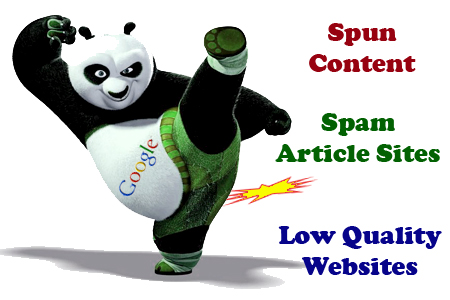What Happened
The Google Panda algorithm was first deployed in February of 2011 and effected up to 12% of search results, most notably for us – our website. The algorithm targeted low quality websites with thin content, high ad to content ratios and other quality signals such as content farms. We got smoked by this algorithm and continued to get dinged each time a new version of Panda was released to the wild.

I’ve read others say that once you get hit by Panda once, you somewhat flatten out and it doesn’t keep hurting you. My perspective on that is different. Our website continually got hit and each time it took a good portion of our traffic – anywhere from 5-20% of whatever the current level of traffic happened to be. Now, this was our own fault mind you. Some of it was because we were lackadaisical in changing our content from standard, un-unique, nearly duplicate content on nearly all of our city/state/zip code pages and some was because I was still pumping out guest blogs which were of the same, poor quality as our website content. I take full responsibility.
